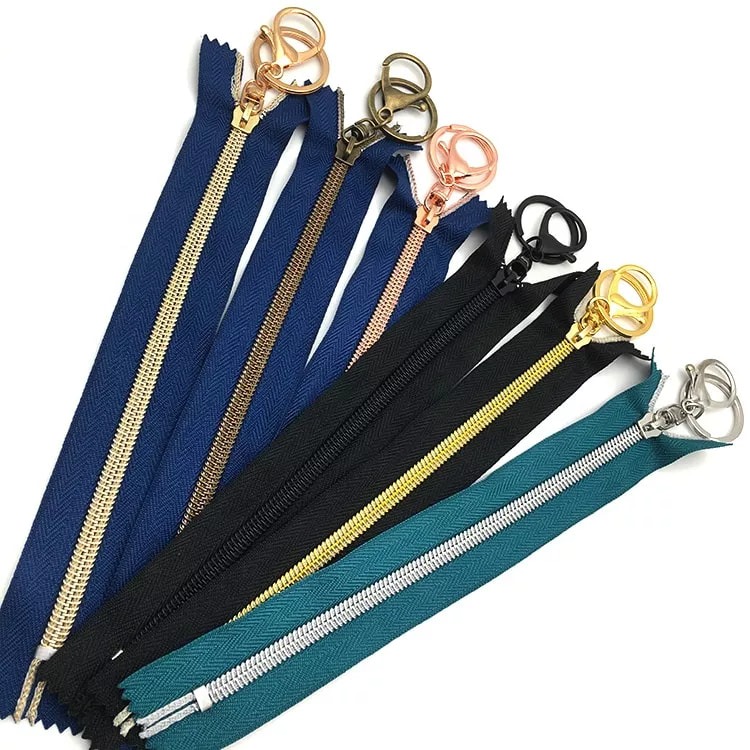Zippers are ubiquitous fastening devices used in various industries and applications, ranging from garments and bags to automotive and furniture upholstery. One type of zipper that has gained popularity is the 3C zipper. In this article, we will explore the concept of a 3C zipper, its features, benefits, and its relevance to the customization of zippers.
1. Understanding the 3C Zipper:
The term "3C" in the context of zippers refers to the combination of three essential elements: Color, Coating, and Composition. A 3C zipper offers customization options in these three aspects, allowing individuals and businesses to create zippers that align with their specific needs and preferences.
2. Color Customization:
One of the key features of a 3C zipper is the ability to customize the color. Traditional zippers are often available in limited color options, which may not match the desired aesthetic or branding requirements. With a 3C zipper, customers can choose from a wide range of color options, enabling them to create zippers that seamlessly blend with their products or designs.

3. Coating Options:
The coating of a zipper plays a crucial role in its durability, functionality, and aesthetics. A 3C zipper allows for customization of the coating material, providing options such as water-resistant coatings, anti-static coatings, or coatings that enhance the zipper's smoothness and ease of operation. By selecting the appropriate coating, customers can ensure that the zipper meets their specific requirements and performs optimally in their intended application.
4. Composition Choices:
The composition of a zipper refers to the materials used in its construction. A 3C zipper offers flexibility in selecting the materials for the zipper tape, teeth, and slider. Customers can choose from a variety of materials such as nylon, metal, polyester, or even eco-friendly options. This customization allows for zippers that are not only visually appealing but also durable and suitable for different environments and conditions.
5. Benefits of Customizing Zippers:
Customizing zippers through the 3C approach offers several benefits. Firstly, it allows for the creation of unique products that stand out in the market, providing a competitive edge. Secondly, customization enables businesses to align their zippers with their brand identity, enhancing brand recognition and cohesion. Additionally, customized zippers can meet specific functional requirements, such as increased strength, improved water resistance, or enhanced ease of use. Overall, customizing zippers through the 3C approach offers a versatile solution that caters to individual needs and preferences.
6. Applications of Customized Zippers:
The ability to customize zippers through the 3C approach opens up a wide range of applications across various industries. Customized zippers can be used in fashion and apparel, allowing designers to create unique garments and accessories. In the automotive industry, customized zippers can be employed in car upholstery, providing a cohesive and tailored look. Customized zippers also find applications in bags, furniture, sporting goods, and many other sectors where personalization and functionality are valued.
The 3C zipper is a customizable zipper that provides options for color, coating, and composition. By allowing customers to tailor these aspects, 3C zippers offer versatility, aesthetic appeal, and functional enhancements. Customizing zippers through the 3C approach enables individuals and businesses to create unique products, align with brand identities, and meet specific functional requirements. With its wide range of applications across industries, the 3C zipper offers a customizable solution for those seeking to enhance their products with tailored fastening devices.


